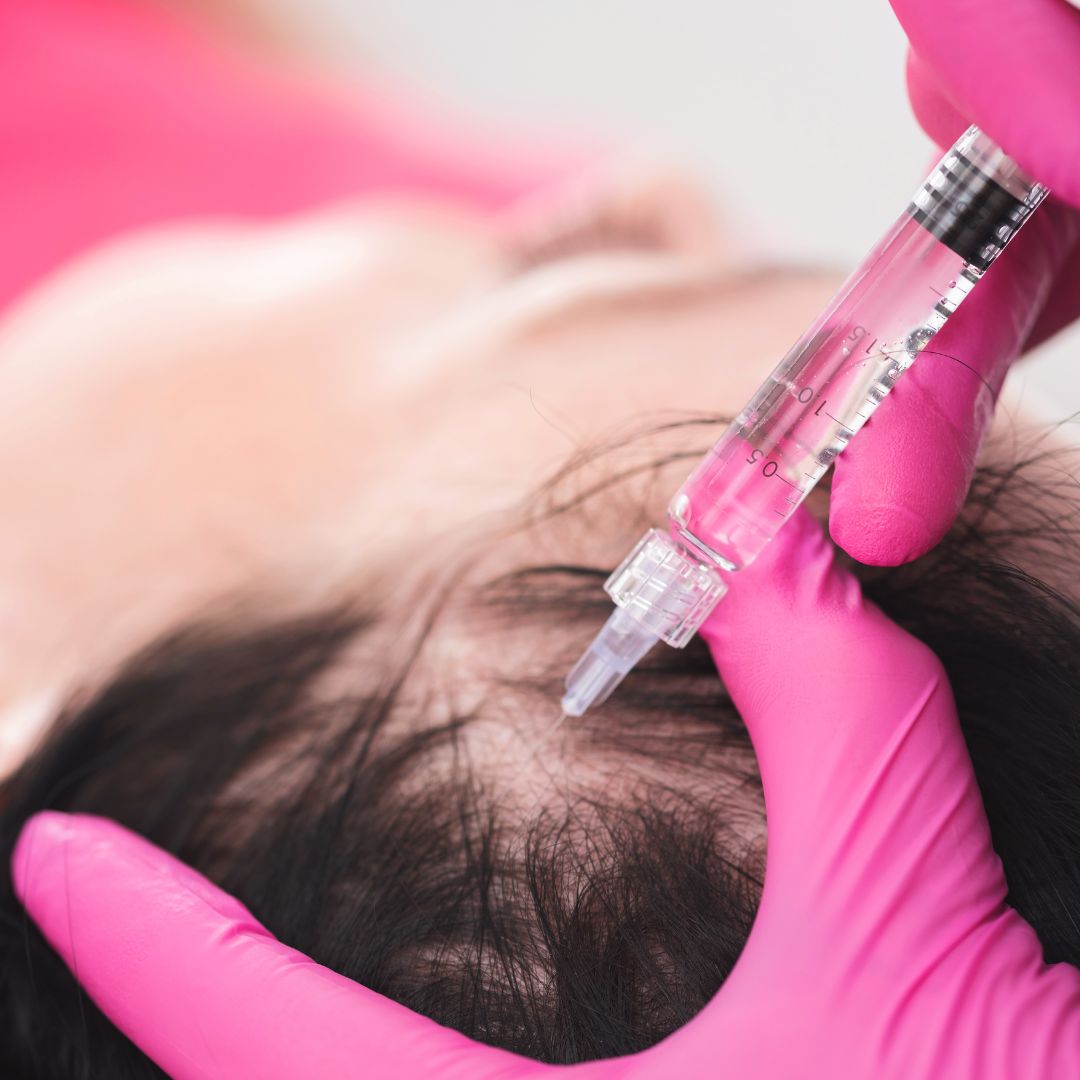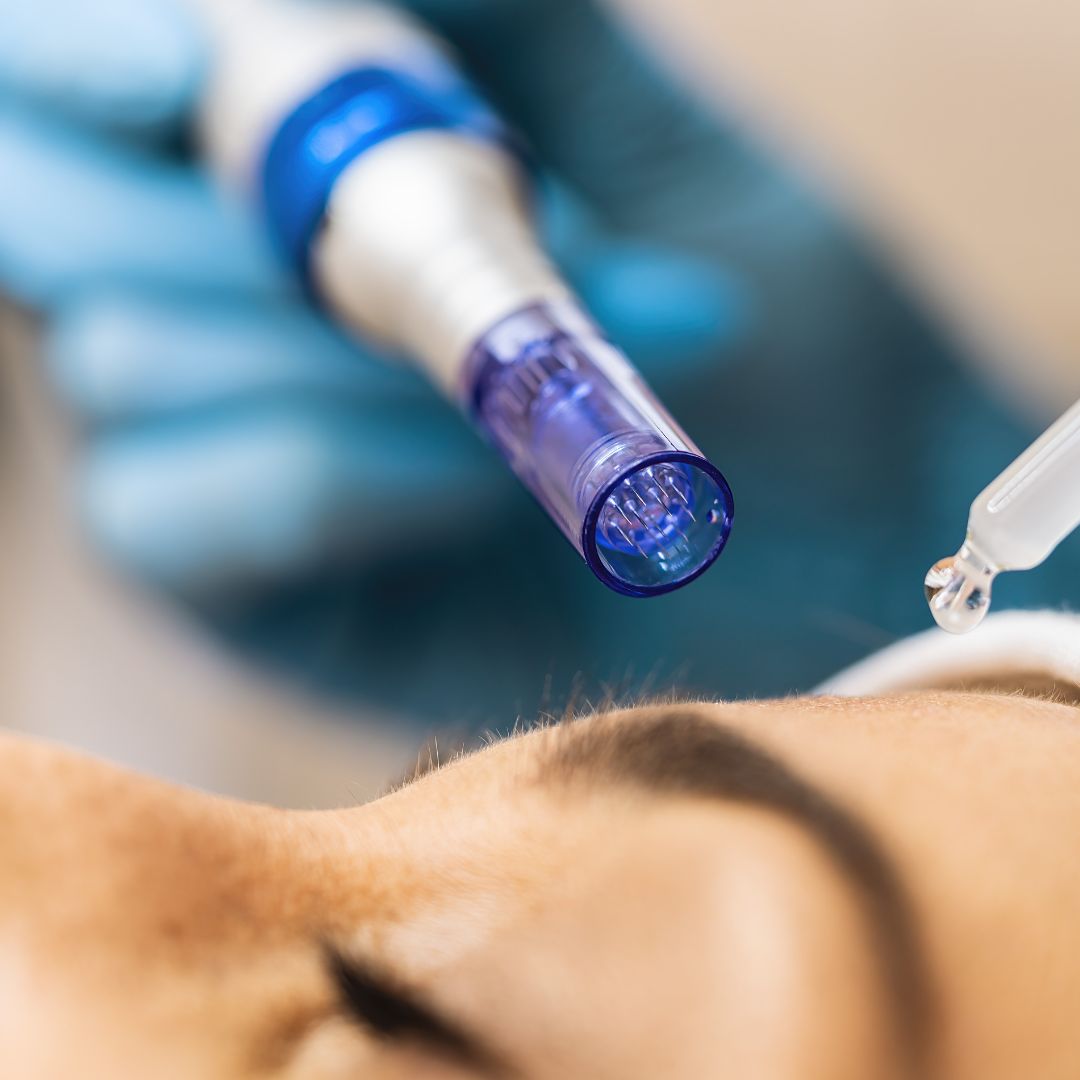Hair loss Overview
Male pattern hair loss (androgenetic alopecia) is the commonest cause of hair loss in men.
It usually starts in either temple and gradually progresses to the classic bald pate. Male pattern hair loss can also occur in women, although this is rare.
More commonly women experience a diffuse hair loss where there is general thinning of the hair to a greater or lesser extent in all areas of the scalp. This can be due to several different factors, including trauma or stress, hormone related disorders, excessive dieting, and certain diseases or drug treatments.
Alopecia areata can occur in both men and women, and is a common disorder in which hair growth suddenly ceases in circumscribed areas. It most commonly occurs on the scalp (but it can also affect the beard in men) and several such bald areas may appear together.
The outcome is unpredictable, but in two thirds of cases involving small bald areas recovery can spontaneously occur after a few weeks.
Hair Loss Triggers:
- Thyroid Problems
- Alopecia Areata
- PCOS
- Ringworm
- Childbirth
- The Pill
- Crash Diets
- Tight Hairstyles
Hair Loss Treatments
- Medical Skin Needling £90
- PRP – Platelet Rich Plasma (PRP) therapy £99 – £280
- Exosomes £250
Exosomes for hair loss
Exosomes hair loss treatment is advanced in stem cell therapy without using actual stem cells but by using ‘communicating vesicles’ to stimulate your own stem cells to release growth factors. They are less risky than actual stem cells as they can not trigger autoimmune or allergic reactions. They are such small particles that even through a small skin injury can penetrate the skin and work locally as well as systemically through the bloodstream.
Hair loss’s primary causes are androgenic alopecia and immune system-mediated reactions. The hair loses blood supply to follicles, shrinks, and dies, causing baldness.
Exosomes enhance communication between epithelial and dermal cells, which in turn release growth factors and stimulate follicles to accelerate growth, improve their capillary supply, and activates the hair cycle.
As exosomes have an effect on VEGF (vascular endothelial growth factor) they enlarge follicle size to promote the growth of thicker and stronger hairs, enhancing their growth cycle.
Effects on hair restoration
Effects on hair growth restoration:
- natural regeneration and activation of hair follicle growth
- repair tissues and revitalize the scalp through its multiple growth factors activation
- enhances hair growth cycle – hair follicles enter its anagen phase sooner to restart the production of new hair strands
- prolongs hair growing stage by delivering signals that continuously stimulate hair follicles to grow new hair
- delays the catagen phase where the hair stops growing
Our Treatments
Platelet-rich Plasma (PRP)
Can improve your complexion and skin texture
Exosomes Skin Therapy
Is an advanced skin care and hair loss treatment
Derma FNS Microneedling
Stimulate the development of new collagen and elastin





